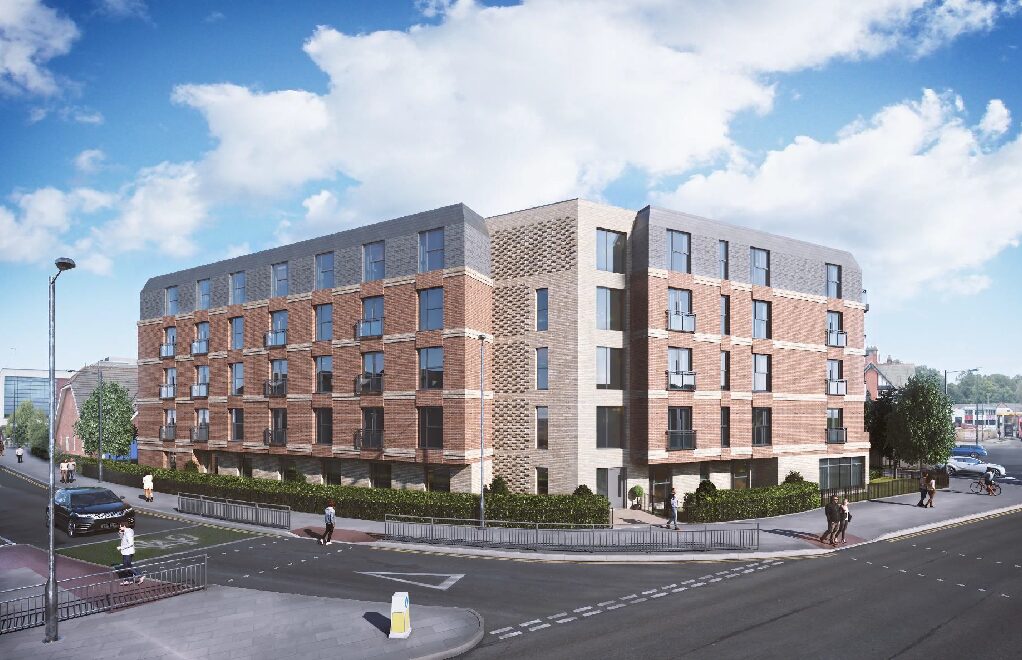Social housing has become an increasingly attractive investment opportunity, combining stable, long-term returns with meaningful social impact. As demand for affordable housing continues to grow, this sector offers investors the chance to diversify their portfolios while contributing to vital community infrastructure. This guide explores the UK social housing investment landscape for 2025, providing key insights for those looking to align financial goals with positive societal outcomes.
What Is Social Housing?
Social housing refers to affordable rental accommodations provided by local authorities, housing associations, or non-profit organisations to individuals and families with low incomes or specific needs. These properties are typically offered at below-market rates to ensure access to safe and decent housing for vulnerable populations. The social housing sector in England owns 4.4 million homes as of March 2022, with a net increase of over 31,000 social homes in the year 2021-2022, highlighting the sector’s significant scale and growth.
Why is the need for social housing increasing?
The demand for social housing in the UK has been steadily rising due to several interconnected factors. The ongoing housing affordability crisis, characterised by rising property prices and stagnant wages, has made it increasingly difficult for many to afford homes on the open market. Coupled with population growth and demographic changes, including an aging population and evolving family structures, these factors have created new and pressing housing needs. The issue of homelessness further underscores the urgency, with over 278,000 households in England either at risk of homelessness or already homeless as of March 2022. Adding to this challenge is the decline in social housing stock, with the number of social rent homes falling from 4.0 million in March 2013 to around 3.8 million in March 2023, emphasising the critical need for investment and expansion in this sector.
Investment in Social Housing: Pros & Cons
Investing in social housing presents a distinctive blend of benefits and challenges. On the upside, it offers stable, long-term returns often supported by government-backed income, making it an attractive option for risk-conscious investors. It also allows for portfolio diversification and can serve as a potential hedge against inflation—all while contributing to positive social outcomes.
However, there are important considerations. Returns may be more modest compared to other real estate sectors, and the space is influenced by regulatory frameworks and shifting political priorities. Additionally, investors often have limited control over day-to-day property management, which can impact operational decisions and performance.
The Pros of Social Housing Property Investment
Social housing investments offer several compelling benefits for investors. They provide a steady income stream, often characterised by consistent, long-term rental income due to high occupancy rates and government-backed tenancies. The social housing market tends to exhibit lower volatility compared to other real estate sectors, providing a measure of stability in uncertain economic times. Investors in this sector also contribute to addressing housing shortages and improving living conditions for vulnerable communities, aligning financial goals with positive social impact. Many social housing projects benefit from government incentives and subsidies, potentially enhancing returns. Moreover, including social housing investments in a portfolio can serve as an effective diversification strategy, providing exposure to a unique market segment within the real estate sector.
UK Social Housing Types
The UK social housing landscape encompasses various types of accommodations designed to meet diverse needs. Council housing, owned and managed by local government authorities, represents a traditional form of social housing. Housing association properties, managed by independent, non-profit organisations, play an increasingly important role in the sector. Shared ownership schemes allow partial ownership with rent paid on the remaining portion, providing a pathway to homeownership for some. Supported housing offers accommodation and support services for vulnerable individuals, while temporary accommodation provides short-term housing solutions for those facing homelessness. Sheltered housing is designed for elderly people who want to live independently with some support. Community-led housing initiatives, driven by local communities to develop and manage affordable housing solutions, represent an innovative approach to addressing housing needs.
Who pays for social housing in the UK?
Funding for social housing in the UK comes from a diverse range of sources, reflecting the complex nature of the sector. Government funding and subsidies play a crucial role, with programs like the £11.4 billion Affordable Homes Programme 2021-26 expected to deliver 157,000 new homes between 2021 and 2026. Local authority budgets contribute significantly, although their role has diminished over time. Housing association revenues, generated through rents and other activities, form another important funding stream. Private investment has become increasingly important in recent years, with investors attracted by the sector’s stable returns and social impact. Tenant rents, typically set at below-market rates, also contribute to the ongoing funding of social housing, although they are carefully regulated to maintain affordability.
Is there an investment case for social and affordable housing in the UK?
The investment case for social and affordable housing in the UK is compelling, driven by high demand and government support. With the social housing sector owning 4.4 million homes and showing consistent growth, the need for investment is clear. The government’s commitment, exemplified by initiatives like the Affordable Homes Programme, provides a supportive environment for investors. Social housing investments typically offer returns of 8-10%, with prices starting from £80,000, presenting an attractive proposition for investors seeking stable, socially responsible opportunities. The National Housing Federation’s 2021 research, which estimated around 1.6 million households with unmet housing needs best addressed through social renting, further underscores the sector’s growth potential and social importance.
Enhanced opportunities for supported living accommodation
Supported living accommodation, which offers specialised housing combined with care services for vulnerable individuals, presents enhanced investment opportunities within the social housing sector. These properties often attract higher rents, potentially delivering yields of 9% or more, making them particularly appealing to investors. The fact that these properties are typically fully funded through the welfare system provides an additional layer of income security. Moreover, leases for supported living often extend up to 25 years, offering investors the prospect of stable, long-term income streams. This combination of higher yields, government funding, and long-term contracts makes supported living accommodation an attractive subsector within social housing investments.
Is Social Housing a Good Investment? How to Invest in Social Housing?
Social housing can be an attractive investment for those seeking stable, long-term returns coupled with socially responsible investment opportunities. It offers portfolio diversification benefits and can provide inflation-hedged income streams, making it a valuable addition to a well-rounded investment strategy. The sector’s resilience during economic downturns and its government-backed nature add to its appeal. However, investors should carefully consider the regulatory environment, potential political risks, and the generally lower returns compared to some other real estate investments. The social impact of these investments, contributing to addressing the UK’s housing crisis, adds a dimension of value beyond pure financial returns.
What are the average Rate of returns for social housing investments?
Social housing investments typically offer returns in the range of 8-10%, providing a competitive yield in the current low-interest-rate environment. In 2019, HSBC reported an average return on equity of over 8.4% for their social housing investments, with rent growth averaging 6.8%. While these returns may be lower than some high-risk investments, they are generally more stable and contribute to social good.
Social Housing Investment Returns Key Takeaways:
- Average returns: 8-10%
- HSBC 2019 report: 8.4% average return on equity
- Average rent growth: 6.8%
- Benefits: Stability, social impact
Alternative Investments London
New Capital Link, a leading alternative investment firm in London, specialises in connecting investors with unique opportunities in the social housing sector. Working closely with the Alderley Group, a specialist in social housing investments, New Capital Link offers investors access to a range of projects designed to deliver both financial returns and positive social impact. The Alderley Group is dedicated to transforming lives through the development of 100% affordable housing schemes, creating vibrant, sustainable communities across the North West of England. Their projects span the entire lifecycle, from innovative land planning to meticulous construction, ensuring the delivery of high-quality affordable housing that exceeds expectations.
Rachel Buscall, CEO of New Capital Link, states: “Our partnership with the Alderley Group allows us to offer investors a unique opportunity to generate attractive returns while making a meaningful difference in addressing the UK’s housing crisis. Social housing investments not only provide stable, long-term income streams but also contribute to building stronger, more inclusive communities.”
For investors looking to diversify their portfolios with socially responsible investments that offer stable returns, New Capital Link provides expert guidance and access to carefully vetted social housing projects. To learn more about these investment opportunities and how they can benefit your portfolio, contact New Capital Link today.






